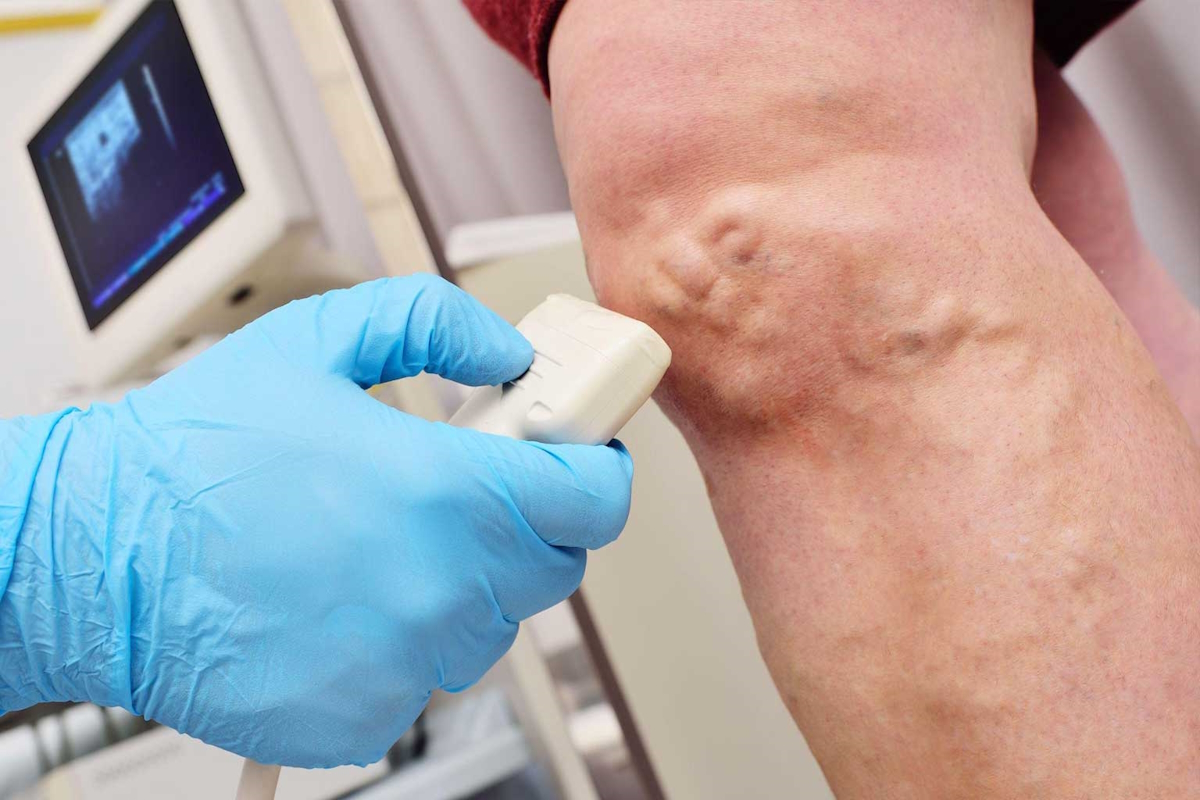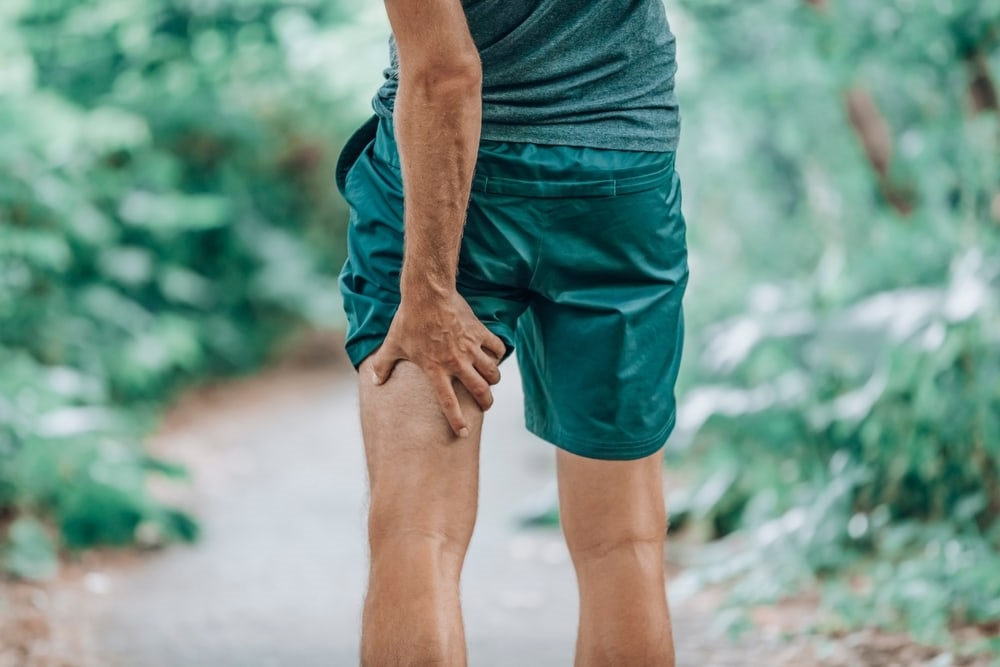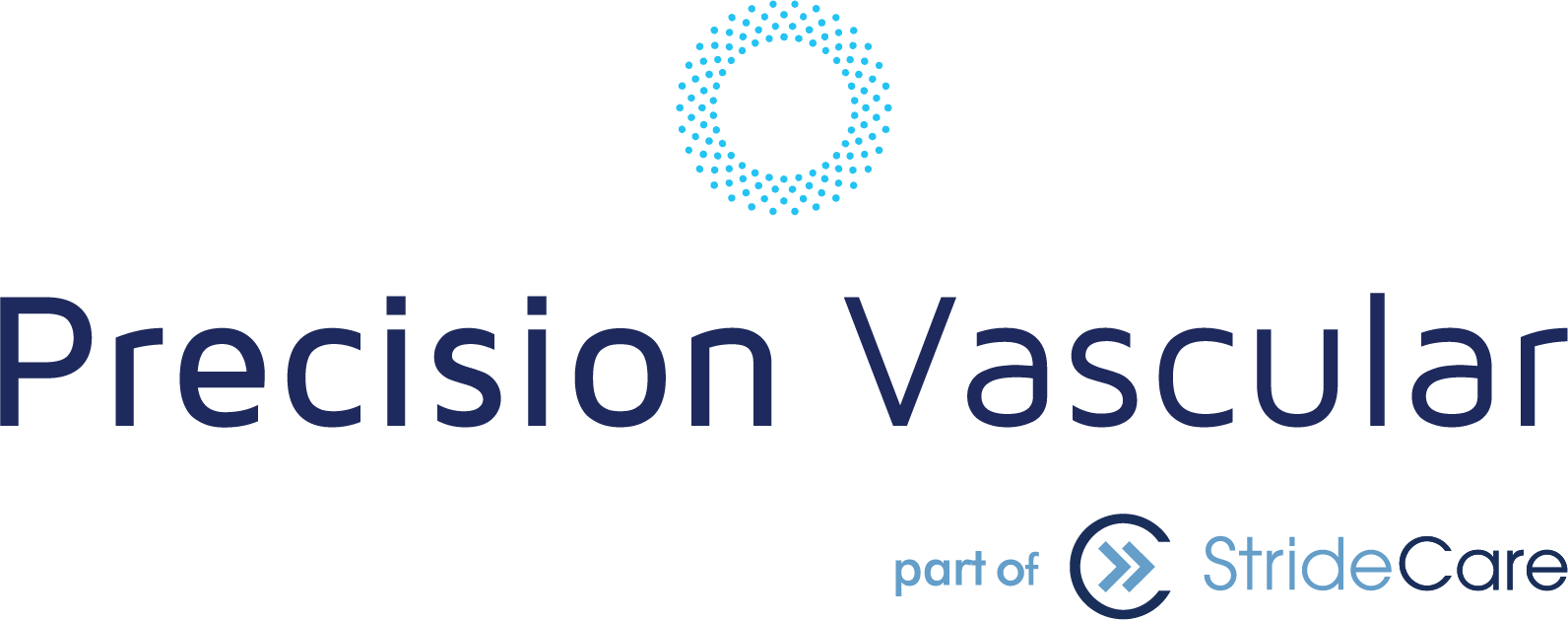You may have heard that vein disease is very common, especially since it affects more than 20 million Americans. But what if we said you could be one of them? Your first reaction might be to say that’s simply not possible. Sure, you’ve noticed a few unsightly spider veins or varicose veins popping on your legs over the years. But you’ve never considered seeking treatment—either because you’re not in any pain or genuinely think the symptoms you do have are unrelated, minor, and could improve with time. Maybe what you’re experiencing is exactly that—nothing to worry about. But there is a myriad of reasons why it might be something to worry about. Choosing to have a simple vein screening sooner rather than later can give you the answers you seek and potentially avoid much bigger problems in the future.
A vein screening quickly evaluates your risk and assesses your symptoms. In addition, a diagnostic venous ultrasound scans your legs and feet to determine what type of problem exists and provides a guide for resolving the issue. And because it relies on ultrasound technology, it is both non-invasive and non-surgical. This can be great news for anyone displaying early or advanced signs of vein disease.
Do Any of These Symptoms Sound Familiar?
- Feelings of achiness
- Visible spider veins or varicose veins
- Heaviness or fullness in your legs
- Burning, throbbing, itching, and swelling
- Skin discoloration
- Restless legs
- Cold legs
- Muscle cramps
- Numb legs
- Discomfort when sitting or standing
- Foot and ankle swelling
- Sores or ulcers on legs that are slow healing
A vein screening could shed light on some of the leg symptoms you’re facing. Call 866-552-4866 to schedule a consultation with Precision Vascular’s experts. Appointment
Do I Need a Vein Screening?
It wouldn’t hurt to consider having a vein screening coupled with diagnostic tests. A diagnostic venous ultrasound uses sound waves to produce a picture of the circulatory system and structures of the veins underneath the skin. This is all done without cutting, scarring, or anesthesia. It also does not use ionizing radiation and has no harmful effects. Venous ultrasound is typically the first test performed to check for vein disease.
Patients can sit back and relax while our specialists take a deeper look at their circulatory health. Your technician will use a small probe called a transducer that emits high-frequency sound waves into the body. As they painlessly glide the transducer over a thin coating of gel on your skin, the probe collects these sounds, and a nearby computer creates an image. The entire ultrasound process typically takes 45-60 minutes to complete, after which time you’ll be able to return to your normal daily activities, including work.

Sometimes venography is a necessary follow-up to uncover problems with veins that venous ultrasound cannot view. With venography, your provider will inject an iodine-based solution into the veins to act as a contrast that can be seen easily on an X-ray. This allows our experts to get a full view of your veins without following up on inconclusive ultrasound findings.
Unlike diagnostic venous ultrasounds, with venography you may experience some mild bruising and tenderness at the access site. This is normal, and side effects typically resolve on their own within a few days.
Have questions about vein screenings? Request an appointment with the highly trained and experienced experts at Precision Vascular. Appointment
8 Reasons to Get a Vein Screening
If you’re still on the fence about whether you need a vein screening, here are 8 reasons to consider:
1. You’re over 65 — Age is not a defining factor for vein disease, as it can affect men and women in their 20s and 30s, too. But it is certainly more common in older adults. This is because as we get older, the valves in our veins can weaken, narrow, and malfunction. As a result, our veins fill up with blood, causing blood to flow forward but also backward in the wrong direction. What were once a few unsightly spider veins and varicose veins can lead to uncomfortable leg pain and other symptoms.

2. You have a family history of vein disease — Hereditary factors are a primary cause of any vein disease. Therefore, if mom, dad, and grandma all have varicose veins or even a history of blood clots, you are predisposed. In fact, statistics show that roughly half of all varicose vein patients have a family history of varicose veins.
3. Current or past pregnancies — Being pregnant is a wonderful time in a woman’s life. That said, 40% of the 25 million men and women in the United States who have varicose veins are pregnant women. This is for a variety of reasons, including the fact that a pregnant woman’s body naturally produces more blood and leads to excess strain on vein valves and walls. Hormonal changes are also a factor, as is weight gain and pressure from the uterus.
4. You’re overweight — Excess weight places additional stress on the circulatory system. This causes veins to work harder than normal to push blood throughout the body, leading to damaged veins and valves.
5. You lead a sedentary lifestyle — We all sit too much, whether it be at work, while we eat, drive, sleep, or even while watching television. In fact, one-third of the global population over the age of 15 doesn’t engage in enough physical activity, which affects health. The obvious risks of a sedentary life include weight gain, fatigue, and even anxiety. But there are less obvious consequences, including vein disease.

6. You sit or stand for long hours at work — If you have a job that requires you to spend most of your time sitting or standing (retail, food service, healthcare, office work, education, airline travel, etc.), gravity sets in and increases the odds that blood will pool in your lower extremities. On top of that, your inactive muscles aren’t helping to move blood from your legs back up to your heart.
7. You’re a bodybuilder or athlete — Weightlifting and intense training regimens don’t cause vein diseases such as varicose veins, but activities such as squats, lunges, calf raises, and leg extensions can place even more strain on already-diseased leg veins and can make existing symptoms worse. Moreover, the stress of those exercises can further weaken vein valves.
8. You have unexplained symptoms — Any of the symptoms mentioned earlier in this post (leg cramps, restless legs, leg pain, itching, swelling, etc.) are reasons to consider having a vein screening. This is especially true if you can’t point to something specific as the reason for them, such as an injury, illness, or allergic reaction.

Get Your Vein Screening at Precision Vascular
A consultation and vein screening, coupled with a diagnostic test, can determine the type, severity, and location of your particular vein problem. The key is not to delay seeking help, as vein conditions can get worse and lead to more complicated issues.
The good news is our team of specialists at Precision Vascular are on the cutting-edge of medicine, helping patients avoid traditionally long invasive surgeries used in the past to treat vascular disease. Technology has advanced to the point where treatments are considered to be “walk-in, walk-out procedures” in most cases and reoccurrence rates are incredibly low. Patients suffering from a multitude of vascular conditions that include varicose veins, spider veins, diabetic vascular disease, venous insufficiency, leg ulcers, peripheral artery disease, leg discoloration, leg and foot swelling, restless legs syndrome, and more can benefit from these minimally invasive treatments.
More good news: Treatments are covered by most major medical insurance providers and Medicare. With locations across the D/FW metroplex—in Arlington, Addison, Flower Mound, Mesquite, McKinney, Plano, Prosper, Sherman, Southlake, and South Dallas—Precision Vascular’s specialists are committed to delivering outstanding and safe care with compassion and concern for all their patients.
For a consultation with one of our expert doctors, please contact us at 866-552-4866 or complete the appointment form.
Prior to starting any new treatment or questions regarding a medical condition, always seek the advice of your doctor or other qualified health provider. This information is not a substitute for professional medical advice.
Precision Vascular serves the D/FW area including Dallas, Mesquite, Craig Ranch, Sherman, Dennison, Arlington, Fort Worth, Southlake, South Dallas, North Dallas, Addison, Carrollton, Richardson, Garland, Highland Park, University Park, Park Cities, Plano, Frisco, Prosper, Allen, McKinney, Irving, Grand Prairie, Denton, Lewisville, Flower Mound, HEB, Hutchins, Duncanville, DeSoto, Cedar Hill, Lancaster, Cockrell Hill, and all North Texas.
*Patient stories are true. Names and/or photos may be changed to protect patient confidentiality.

